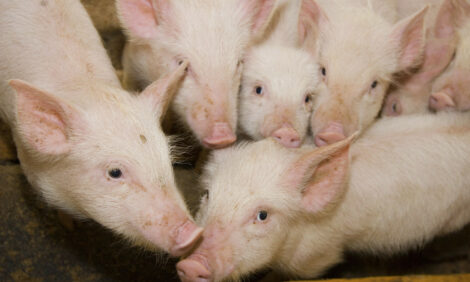



Canadian Livestock Producers Join Forces Against U.S. Country of Origin Labelling Provisions
CANADA - Calgary, AB –The Canadian Cattlemen's Association (CCA) and the Canadian Pork Council (CPC) have formed a coalition seeking U.S. country of origin labelling (COOL) provisions that conform to international trade agreements.The coalition, known as Canadian Livestock Producers Against COOL (CLiP COOL) shares the view that the mandatory COOL provision of the U.S. Farm Bill violates U.S. trade obligations under the North American Free Trade Agreement (NAFTA) and the World Trade Organization (WTO). Mandatory COOL, as it is currently written, must be repealed or undergo substantial revisions if it is to conform to NAFTA and the WTO. CLiP COOL is also concerned that the so-called “fix” currently being promoted in Washington continues to fall extremely short of complying with U.S. obligations.
CLiP COOL is calling on the Government of Canada to express these concerns to the U.S. government in the strongest possible terms. “Of course we would hope that the Canadian and U.S. governments could find a way to avoid this trade barrier from being implemented, but failing that, we expect our government to exercise its rights under the NAFTA and WTO and challenge this trade barrier,” explains Pork Council president Clare Schlegel.
There will be added costs as a result of the requirement for verifiable recordkeeping audit trails, and detailed labelling that would allow only meat from animals ‘born, raised and processed’ in the United States to be labelled a ‘Product of USA’. Beef and pork produced in U.S. facilities from cattle and hogs born in Canada and exported to the United States at a young age for feeding would require a label indicating the meat is ‘From Canada and the United States’.
“We have never been concerned that Canadian beef and Canadian pork could not compete. In fact we will market our meat products aggressively to ensure they can do well under this law,” states Hugh Lynch-Staunton, president of the CCA. “The problem is that access for live animals to U.S. slaughter facilities will be impaired if those facilities do not want to incur the burden of tracking which product satisfies which origin label. So even though Canadian meat might do well with U.S. consumers, Canadian livestock producers will face lower prices for their animals.”
The only way to avoid the discrimination against Canadian animals is for the labelling law to acknowledge that the act of processing live animals into meat is a substantial transformation and that the meat is the origin of the country where that transformation occurred. CLiP COOL believes that the NAFTA and the WTO require the United States to treat meat from animals processed in the United States as U.S. meat.
Live cattle and swine exports to the United States in 2006 were valued at over $1.8 billion.








